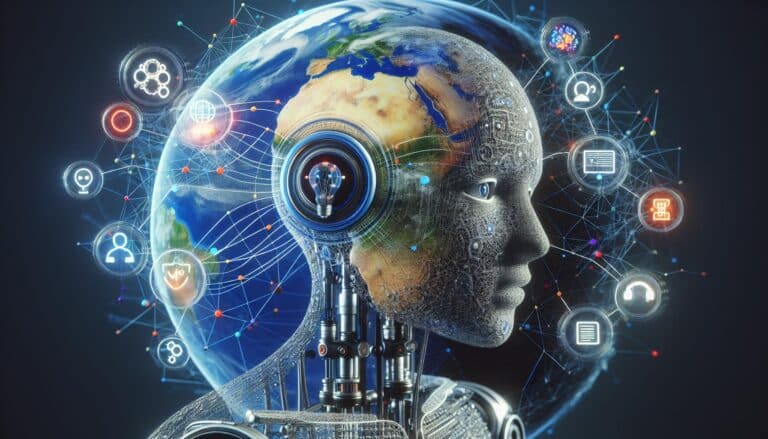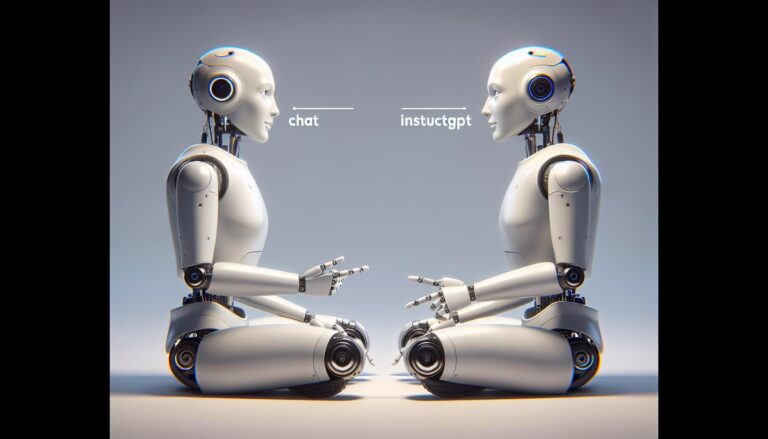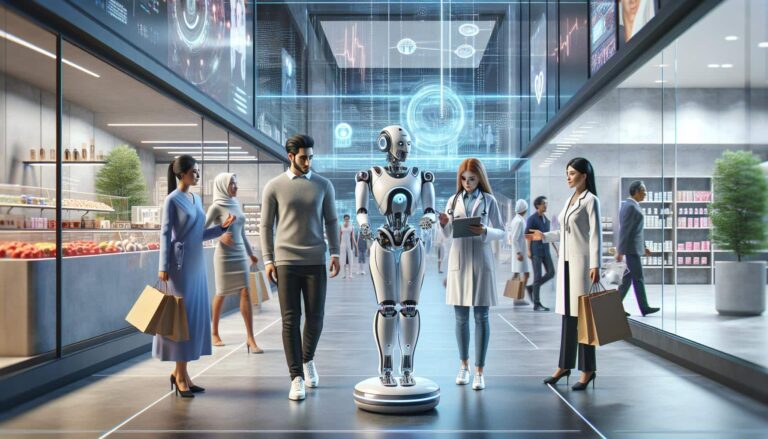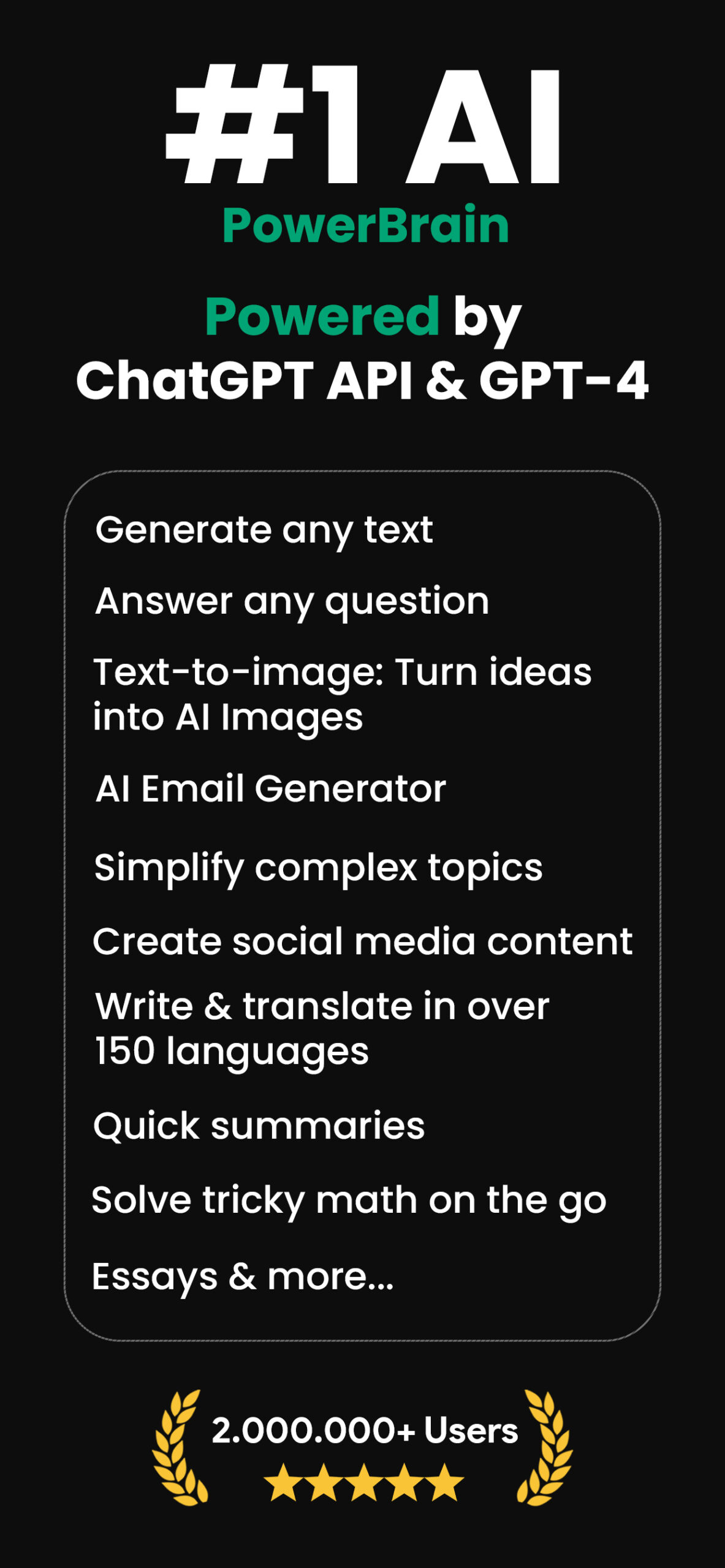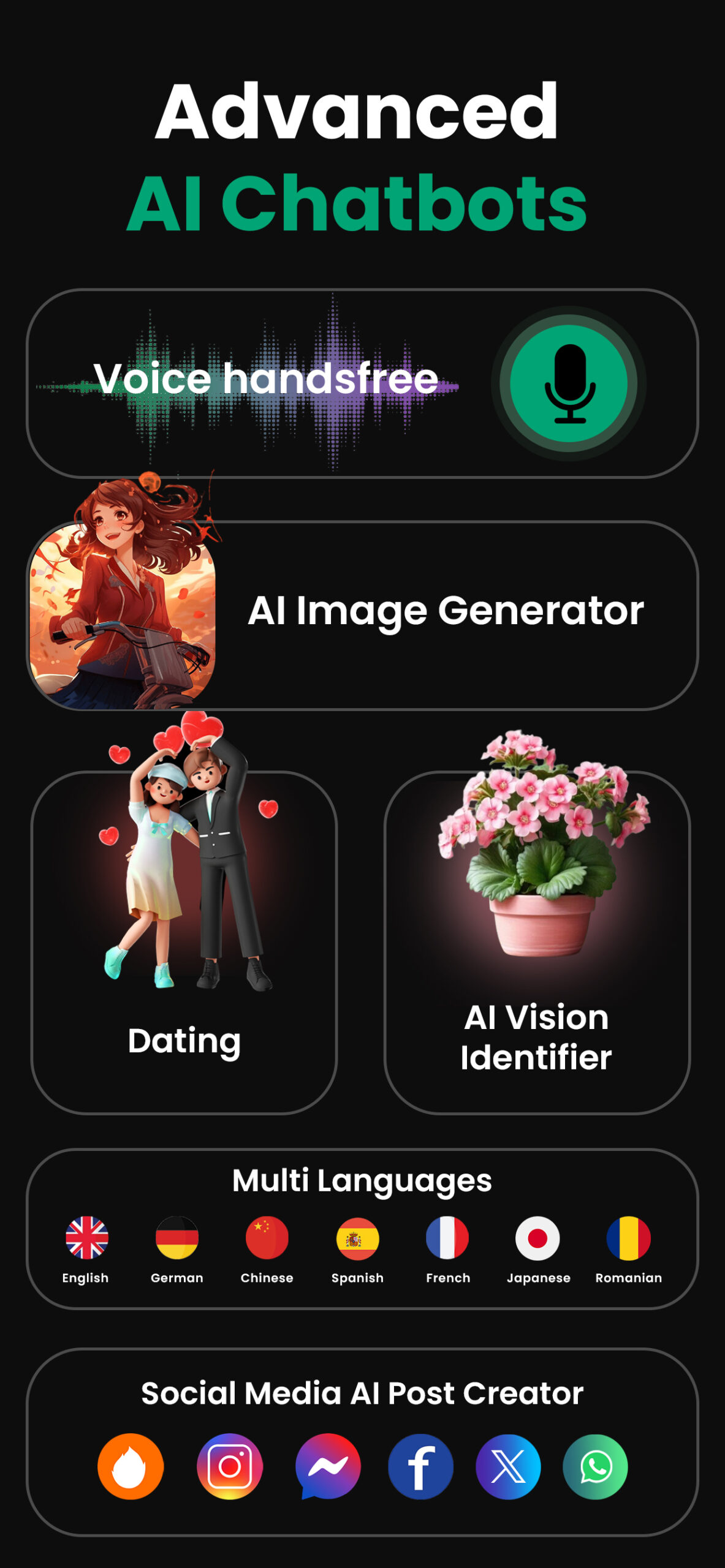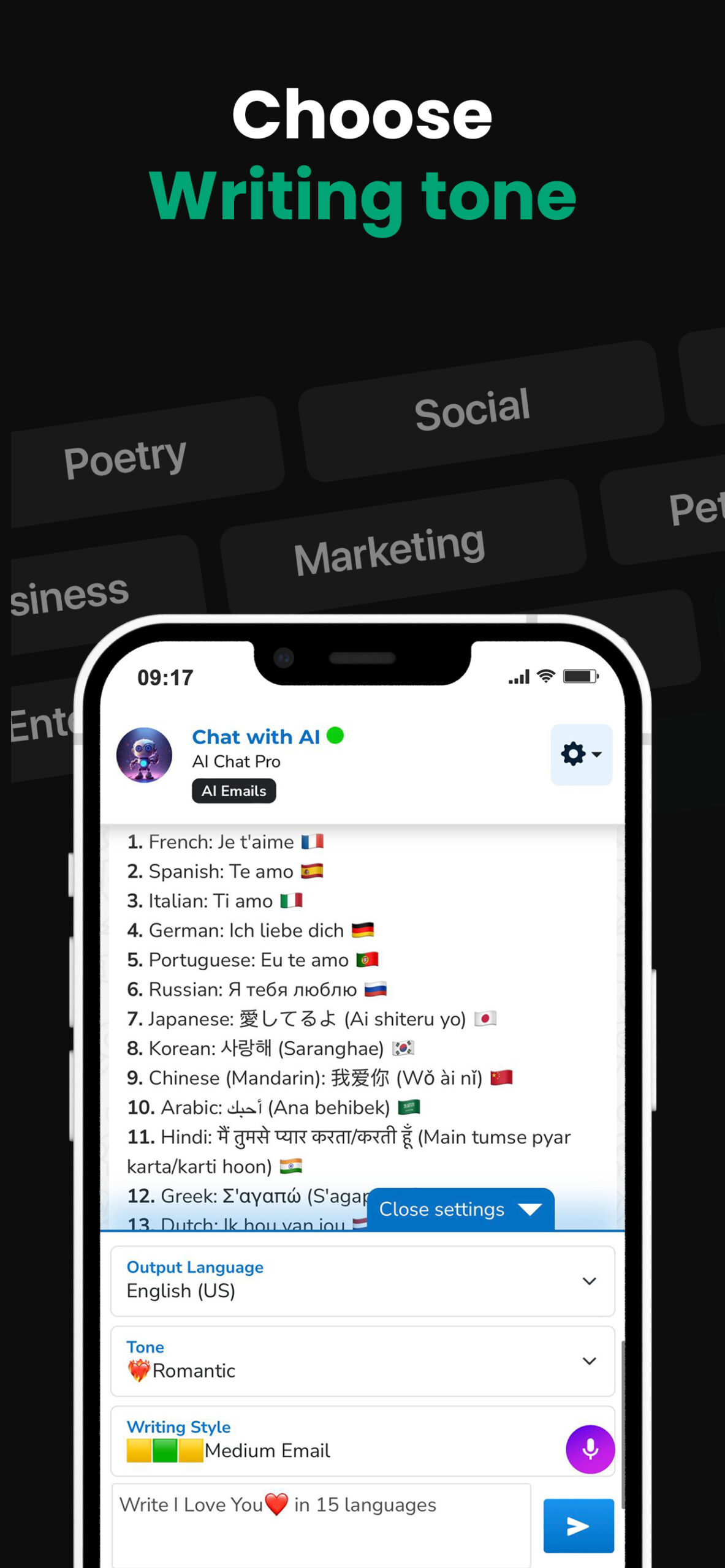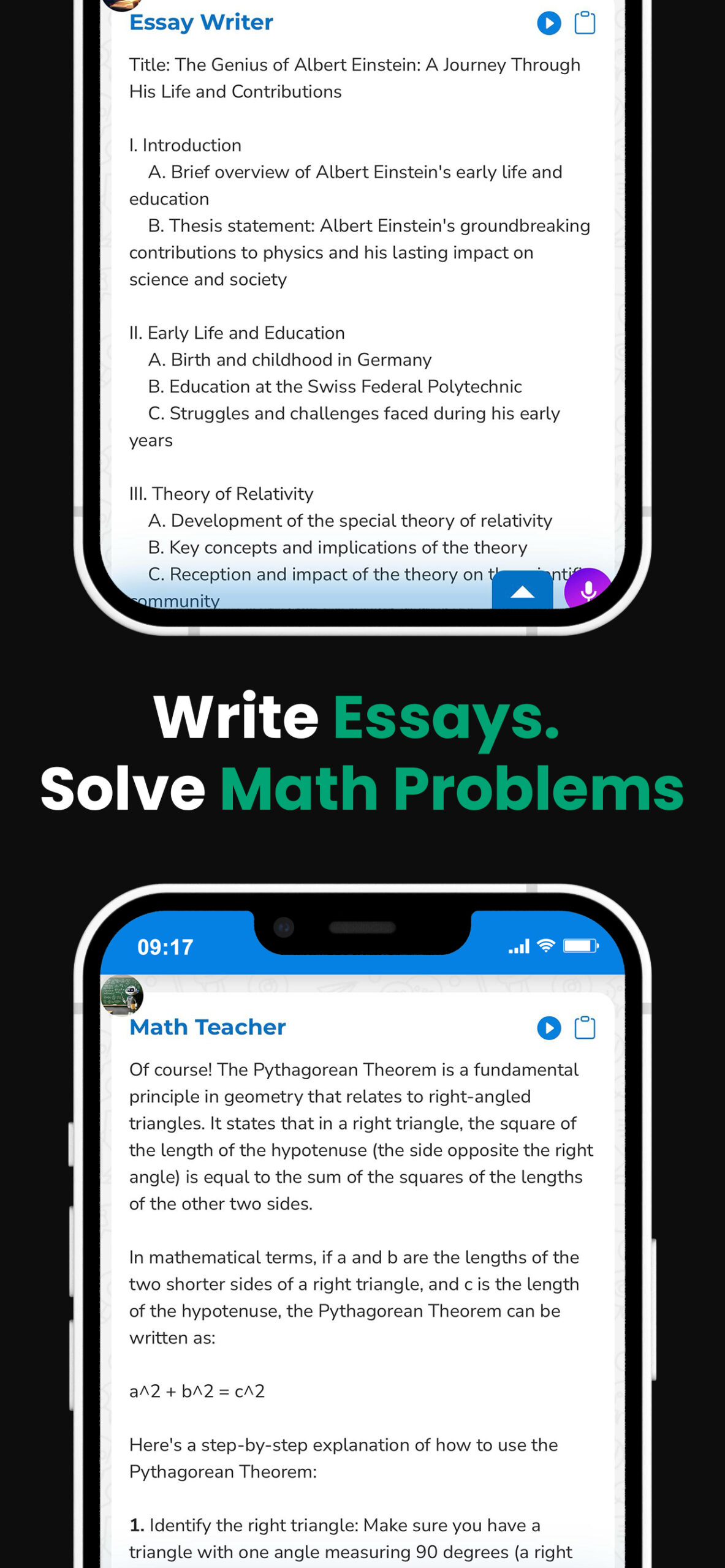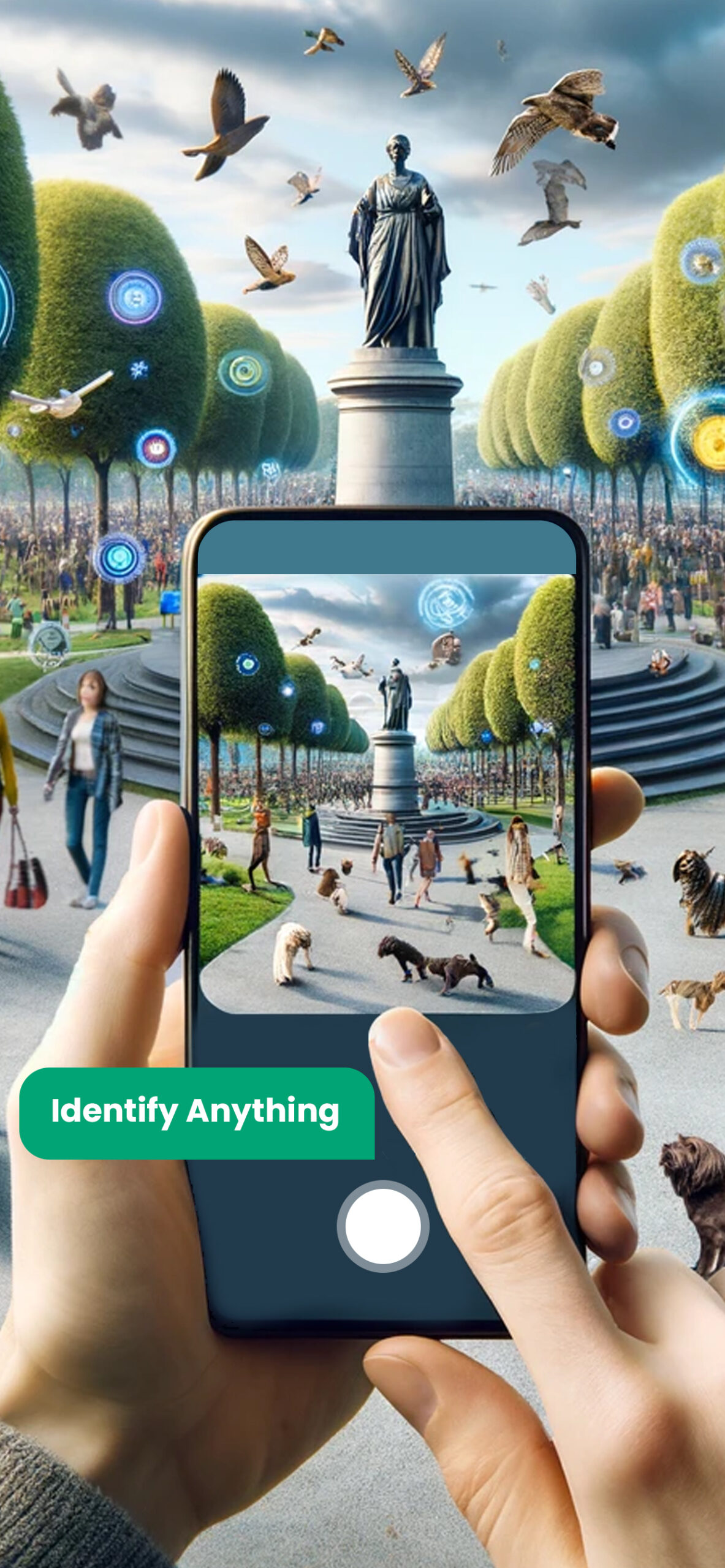Unleashing the Power of GPT-5 AI: A New Dawn in Automation
I’m sure you’ve heard about AI and machine learning. But have you ever come across the term ‘GPT-5 AI’? If not, you’re in for a real treat. It’s the next big thing in the world of artificial intelligence.
GPT-5 AI is a powerhouse, a game-changer in the tech industry. It’s transforming the way we interact with machines and how they understand us. But what exactly is it? How does it work? And why should you care?
In this article, I’ll unravel the mysteries surrounding GPT-5 AI. We’ll dive into its fascinating world, exploring its potential and the opportunities it presents. So, if you’re keen to learn about the future of AI, stick around. You won’t want to miss this.
PowerBrain AI Chat App powered by ChatGPT & GPT-4
Download iOS: AI Chat Powered by ChatGPT
Download Android: AI Chat Powered by ChatGPT
Read more on our post about ChatGPT Apps & Chat AI
Key Takeaways
- GPT-5 AI, developed by OpenAI, is a revolutionary artificial intelligence model that transforms human-machine interaction by seamlessly generating human-like text and understanding context better.
- The performance of GPT-5 AI is significantly influenced by its scale and the ‘context window’ size. As expected, GPT-5 is much larger than its predecessors, enhancing its ability to generate dynamic organic text.
- GPT-5 uses unsupervised learning, learning from vast amounts of text data without any explicit instructions or rules. It’s equipped with an ‘attention mechanism’ and assigns different weights to words depending on their relevance in a specific context.
- GPT-5 AI is set to revolutionize various sectors. Its ability to automate complex text generation can greatly improve tasks like drafting emails, creating editorials, and scripting software. Its potential application in customer service through advanced chatbot interfaces can lead to real-time, accurate, and human-like responses.
- Despite its superior abilities, GPT-5 doesn’t grasp higher-level concepts like implications and emotions. Nonetheless, advancements made from this technology are bringing us closer to creating AI that can truly reason and understand like a human.
- Lastly, GPT-5 AI matters because it’s pushing the boundaries of replicating human intelligence in machines, promising an era of AI that can think, learn, and respond just as humans do.
What is GPT-5 AI?

Diving right into the nuts and bolts, GPT-5 AI, or simply Generative Pretrained Transformer 5 to the uninitiated, represents the fifth iteration of the transformative AI model developed by OpenAI. It’s akin to an advanced language decoder. Boasting seamless text generation capabilities, this AI tech truly breaks the barriers of human-machine interaction.
Designed around a transformer architecture, GPT-5 AI leverages machine learning algorithms that excel at understanding context. But here’s where it shows off its muscle: it’s not just limited to recognizing patterns in data. It synthesizes this information to predict and generate human-like text, enticingly blurring the line between man and machine.
What differentiates GPT-5 AI from previous iterations is its impressive scaling up of model size. Here’s a recap of the model sizes for the past iterations:
| Generation | Parameters |
|---|---|
| GPT-1 | 117M |
| GPT-2 | 1.5B |
| GPT-3 | 175B |
| GPT-4 | 1.2T |
While information on GPT-5 AI’s exact size isn’t readily available, it’s forecasted to be substantially larger. It’s expected to display remarkable linguistic abilities and improved comprehension of nuances, idioms, and context.
So, as we delve deeper into the workings of this intuitive AI, you’ll grasp why the tech world is abuzz. GPT-5 AI is reshaping our understanding of artificial intelligence, infusing every interaction with elements of authentic human conversation. It’s a game-changer, but understanding it doesn’t necessitate being a tech guru. Let’s keep exploring.
Read more
ChatGPT not working
BERT vs GPT
FREE GPT 4
GPT-3 vs GPT-4
Claude vs ChatGPT
Gemini PRO vs Chat GPT-4
Chat GPT vs Jasper
Chat GPT no restrictions
Connect ChatGPT to internet
Chat GPT no login
How Does GPT-5 AI Work?
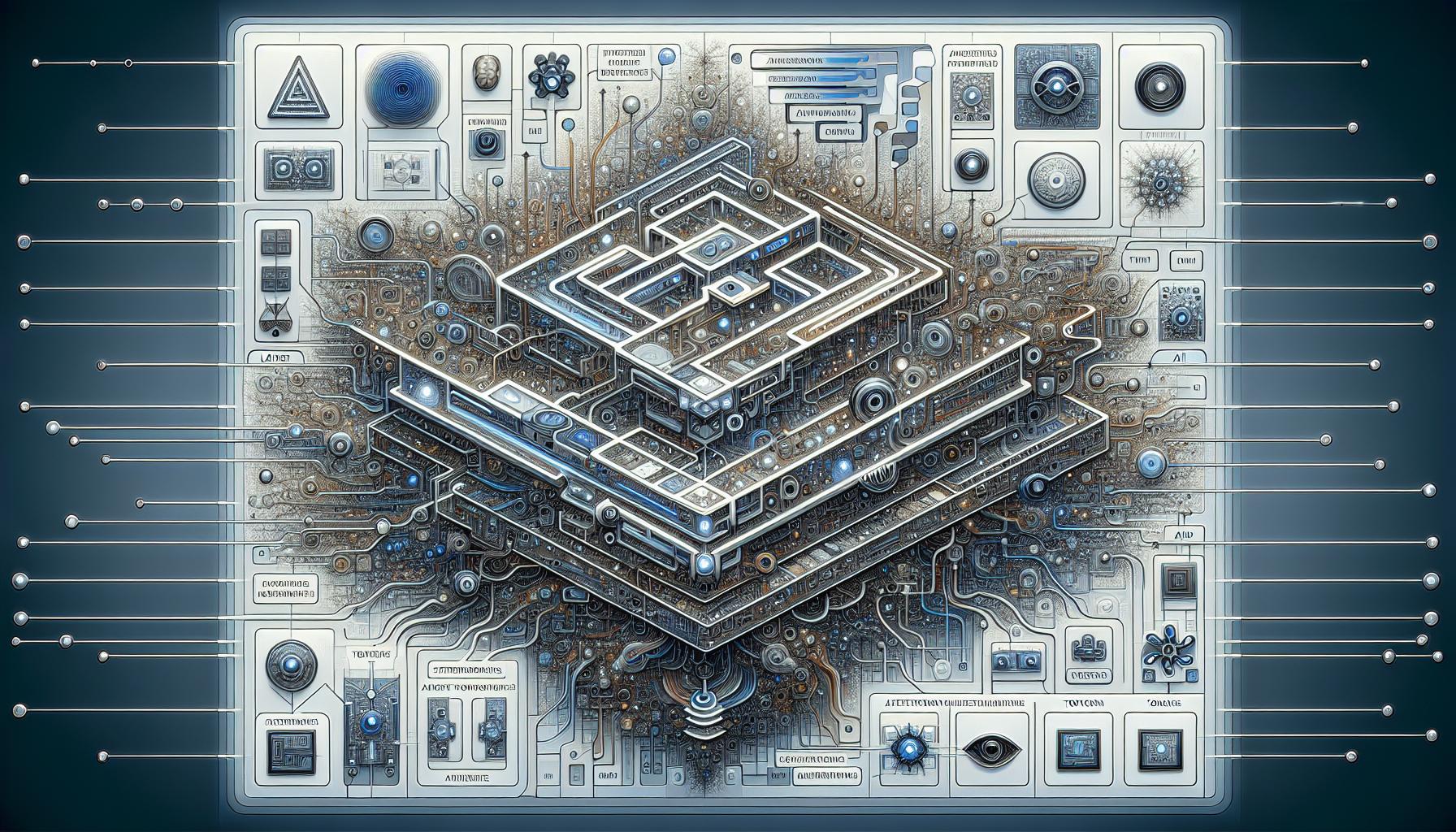
Diving deeper into the workings of the advanced GPT-5 AI model, it’s crucial to understand that this AI powerhouse operates based on a language model called a transformer. This architecture enables GPT-5 to predict the next word in a sentence based on the context of the preceding words.
Contrary to a traditional algorithm, GPT-5 learns through unsupervised learning. In simpler terms, it gets trained with enormous amounts of text data but isn’t given any explicit instructions or rules to learn a language.
GPT-5’s unique approach incorporates a concept known as the ‘attention mechanism,’ vastly contributing to its improvement over earlier iterations. This mechanism designates different weights to different words, depending on their relevance in a specific context. This helps in generating dynamically organic text.
But how does GPT-5 manage to generate such coherent and human-like text? Well, it’s all about scale and the context window. The sheer size of this AI model seems to be a pivotal factor in its performance. GPT-5, being significantly larger than its predecessors, has a wider context window – the block of text it looks at while predicting the next word.
Notably, GPT models, including GPT-5, always output a string of text, irrespective of what’s been input. The category of the input does not influence the AI’s response. If it’s fed an equation, it might return an elaborated explanation. Similarly, an unstructured prompt might lead to an inadequately structured output.
Meanwhile, it’s important to remember that although GPT-5 can generate human-like text, it doesn’t ‘understand’ implications, emotions, or higher-level concepts like humans do. It’s a reflection of the data it’s been trained on, making it only as good and as ethical as its training data.
Nevertheless, the GPT-5 AI model continues to hold immense promise in the realms of text-generation and AI-powered conversation. Its expansive capacities and functional range could enable groundbreaking possibilities as we continue to harness its potential.
The Impact of GPT-5 AI on Technology
GPT-5 AI is an undeniable game-changer in the current technology landscape. It’s shaping up as a revolution on its own, stretching the limits of what’s possible in machine language processing and understanding.
With the power that GPT-5 AI possesses, the technology community will see changes in numerous ways. The most eminent shift will be the automation of complex text generation. The ability to perform tasks such as drafting editorials, creating email responses, or scripting software is possible because of GPT-5.
The AI tool can further add value in the field of customer service. GPT-5 AI can serve as the base for advanced chatbots and virtual assistants, improving the customer experience by providing immediate, accurate, and human-like responses.
Troubleshooting steps, the top complaint in customer service, can be written out almost in real time. The wait time for clients seeking assistance can be significantly reduced, yielding high customer satisfaction.
Another area where GPT-5 AI can make a considerable impression is in programming. With an uncanny ability to generate human-like text, it’s not far-fetched to infer that it can produce readable and meaningful code.
Moreover, GPT-5 has the potential to change the dynamics of machine learning. It can help extend the techniques used in unsupervised learning, which can, in turn, create AIs that can better understand human context and emotion. Though GPT-5 AI currently lacks the understanding of true implications and emotions, advancements made from this technology will take us closer to the goal of creating AI that can truly reason and understand like a human.
Through all of these changes and advancements, GPT-5 is making its mark as a credible tool to augment productivity in businesses by reducing the resources required for complex text generation. And while it’s still developing, I’m optimistic that it will continue to shape the future of technology in the years to come.
Exploring the Potential of GPT-5 AI

It’s remarkable how GPT-5 AI is shaping the landscape of technology. With its far-sighted functionality, it’s heading off into uncharted territories. GPT-5’s capacity to generate complex text is revolutionizing machine language processing and comprehension. For instance, let’s consider its applications in drafting well-structured editorials, crafting articulate email responses, and scripting refined software.
GPT-5 AI isn’t just automating these tasks; it’s also enhancing the resulting quality. Be it sculpting the content for an upcoming publication or crafting the plot of an innovative video game, GPT-5 is breaking boundaries.
Transitioning to customer service, this AI’s potential seems boundless. It’s transforming the experience for users with advanced chatbots and virtual assistants, offering real-time and almost human-like resolutions. Businesses are starting to appreciate the efficiency that it brings to their customer relations. Standing at the forefront of the customer service revolution, GPT-5 manages to provide immediate responses that maintain a sense of authenticity and emotion.
A fascinating avenue where GPT-5 is showing progress is code generation. Today, similar technologies require an understanding of programming logic. The ability of GPT-5 to generate clear and readable code shatters these existing challenges. It’s a whole new step towards an efficient, automated, AI-driven coding realm.
Finally, let’s look at GPT-5’s promise in unsupervised learning. It’s in its initial stages but making quite impressive strides. This potential speaks volumes about AI’s ability to comprehend complex human scenarios sans human intervention. By mimicking human context and emotions, GPT-5 brings us a step closer to eradicating the need for supervised learning in complex AI systems.
In sum, it’s clear that GPT-5’s limitations in understanding implications and emotions pose substantial hurdles. Despite these hurdles, GPT-5 sits on a goldmine of untapped potential waiting to be discovered, promising the dawn of a revolutionary era in technology.
Why GPT-5 AI Matters
GPT-5’s ability to revolutionize machine language processing and comprehension has caught the attention of technologists the world over. It’s not just a shiny new toy in the tech world but a game-changer in automating tasks. From drafting editorials and creating email responses to scripting software, it’s enhancing the quality of output never seen before.
Advanced applications of GPT-5 are shaping the future of customer service. The evolution of AI, from simple command-based programs to advanced chatbots and virtual assistants like GPT-5, has been incredible. Providing real-time and human-like responses to customer queries creates more engaging interactions, setting a new benchmark for customer service.
What’s more intriguing is GPT-5’s prolificacy in generating readable codes, a testimony to its potential. It’s been instrumental in leading the foray into the uncharted territories of unsupervised learning. This aspect unlocks new possibilities to make machines understand human context and emotions better.
But there’s more to the story. Like two faces of a coin, GPT-5, with all its advantages, also poses some challenges. Its struggle to grasp implications and emotions is an area to work on. But with the pace at which it’s evolving, overcoming such challenges won’t be a mountain to climb.
With all these aspects in view, asserting why GPT-5 matters is like stating the obvious. It’s undoubtedly a catalyst for change in the tech world, streamlining text generation processes and leading future advancements. However, at the core, GPT-5 is forcing us to rethink the boundaries of human intelligence and its replication in machines. It promises not just efficiency but a future where AI can think, learn, and respond just as humans do. The advent of GPT-5 ushers in an exciting era of unprecedented technological advances.
Conclusion
GPT-5 AI is undeniably reshaping the tech landscape. It’s pushing the envelope in machine language processing and comprehension, revolutionizing tasks like editorial drafting and email response creation. It’s also making waves in customer service with its ability to provide real-time, human-like responses. Despite its challenges in understanding emotions and implications, it’s a game-changer. It’s streamlining text generation and advancing in unsupervised learning, bringing us closer to truly intelligent machines. As we look ahead, the potential of GPT-5 AI is vast and exciting. It’s not just about what it can do now but what it could do in the future. The journey to that future is something I’m eager to witness.
What is the role of GPT-5 AI in automating tasks?
GPT-5 AI is transforming how tasks get automated throughout industries. It helps draft editorials, generate email responses, and script sophisticated software, thus streamlining text generation processes.
How does GPT-5 AI impact customer service?
GPT-5 AI powers chatbots and virtual assistants, enabling a seamless customer service experience. It is capable of offering real-time, human-like, context-related responses, thereby drastically enhancing user interactions.
Can GPT-5 AI generate readable code?
Yes, one of the many advanced GPT-5 applications includes generating readable and efficient code, thereby accelerating software development and the quality control process.
How does GPT-5 AI contribute to unsupervised learning?
GPT-5 AI is excelling in unsupervised learning. It leverages this capacity to comprehend better human context, implications, and emotions and to mimic human-like intelligence in machines.
Does GPT-5 AI face any challenges?
Although revolutionary, GPT-5 AI still has difficulty comprehending implications and deciphering human emotions accurately. Yet, it’s considered a significant stride towards technological advancement, directly pushing the boundaries of AI’s capabilities.


